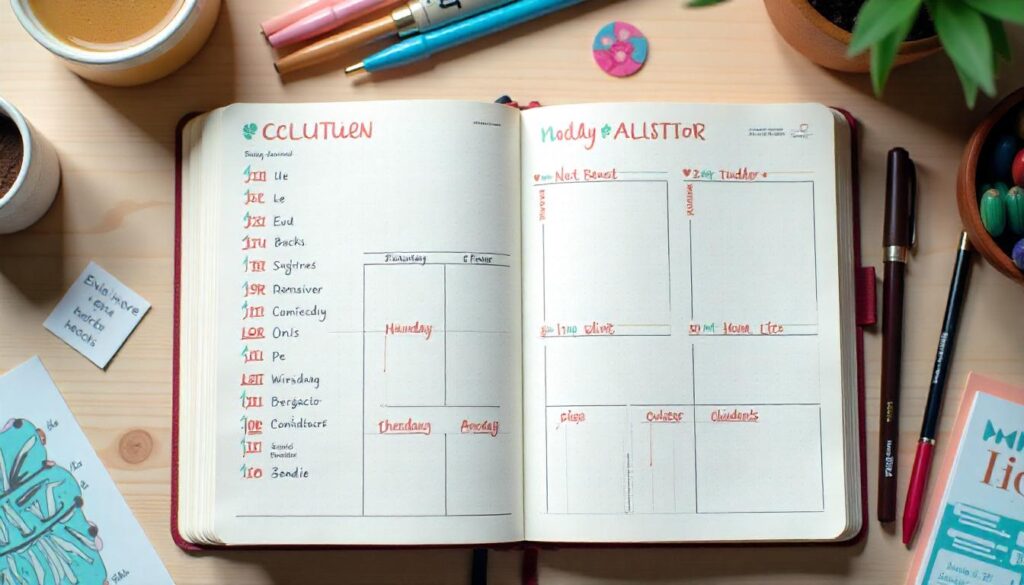In our fast-paced, constantly connected world, it’s easy to feel overwhelmed, disorganized, or emotionally drained. Amid the chaos, there’s one simple yet profoundly effective habit that can bring clarity, emotional balance, and focus to your life: daily journaling.
Journaling is more than just putting pen to paper—it’s a powerful tool for self-reflection, creativity, personal growth, and mental wellness. Whether you’re jotting down your thoughts in the morning or recapping your day before bed, the act of writing daily can lead to significant transformations. Let’s explore why journaling matters, how to do it effectively, and the many benefits it brings.
Why Journaling Daily Matters

Daily journaling is the practice of writing every day, typically in a notebook or digital format, to reflect on your thoughts, emotions, goals, and experiences. It doesn’t require you to be a skilled writer—just honest and consistent.
Here’s why journaling every day is powerful:
- Clarity of Thought: Writing things down helps you untangle complex thoughts and make sense of confusing emotions. It gives structure to mental clutter and turns vague feelings into clear insights.
- Emotional Regulation: Journaling can serve as a safe space to express emotions you may not want to share with others. Over time, it helps in managing anxiety, anger, sadness, and even joy more effectively.
- Mindfulness and Presence: It draws your attention to the present moment, encouraging mindfulness. Instead of rushing through your day, journaling helps you pause and reflect.
- Track Growth and Patterns: Looking back at old journal entries lets you see how far you’ve come. You may discover patterns in your behavior, triggers, or habits that you weren’t aware of.
Benefits of Daily Journaling
Daily journaling has been linked to a variety of mental, emotional, and even physical benefits. Here are some of the most impactful:
1. Reduces Stress and Anxiety
When emotions build up, they often become overwhelming. Journaling allows you to release that tension. Studies show that expressive writing can lower stress hormone levels, reduce intrusive thoughts, and improve mood.
2. Boosts Creativity
Free writing—where you let your thoughts flow without worrying about grammar or coherence—can unlock creativity. Many writers, artists, and entrepreneurs use journaling to generate ideas and explore new perspectives.
3. Improves Goal Setting
Writing about your goals helps you clarify them, break them into manageable steps, and track progress. It keeps you accountable and motivated, especially when you review your goals regularly.
4. Strengthens Memory and Comprehension
Writing things down—whether they’re experiences, lessons, or quotes—helps reinforce them in your mind. Journaling can even improve your ability to remember and understand new information.
5. Enhances Self-Discipline
The act of journaling daily, even if just for five minutes, cultivates discipline and consistency. These qualities often spill over into other areas of your life, like work, fitness, or study.
How to Start a Daily Journaling Practice
Starting is often the hardest part. Here are some steps to make journaling a sustainable daily habit:
1. Choose Your Medium
Pick a format that suits your style: a physical notebook, a journaling app, or a simple text document. Some people love the tactile experience of handwriting, while others prefer the convenience of typing.
2. Set a Routine
Decide when you’ll write each day. Morning journaling can help set intentions and clarify your mindset for the day ahead. Evening journaling is great for reflection and emotional processing. Choose what fits your lifestyle.
3. Keep It Simple
Start small. Even 5–10 minutes a day can make a difference. Don’t pressure yourself to write a masterpiece. It’s more important to be consistent than perfect.
4. Use Prompts
If you’re unsure what to write, prompts can help. Here are a few to get started:
- What am I grateful for today?
- What did I learn today?
- What’s been on my mind lately?
- How do I feel right now and why?
5. Be Honest
Your journal is a judgment-free zone. Don’t worry about grammar, spelling, or how it sounds. Be truthful and open with yourself—this is where the real growth happens.
Different Styles of Journaling
There’s no one “right” way to journal. Try different styles and see what resonates with you:
- Gratitude Journaling: Write 3–5 things you’re thankful for each day. It’s a powerful way to shift your mindset and find positivity in your life.
- Stream of Consciousness: Also known as “free writing,” you simply write whatever comes to mind without censoring or editing.
- Bullet Journaling: A structured system that combines to-do lists, schedules, and reflections. It’s great for those who like organization and planning.
- Mood Tracking: Track your emotions daily and note events or thoughts that triggered certain feelings.
- Goal Journaling: Focus on your short-term and long-term goals, recording progress, challenges, and successes.
Tips for Making the Habit Stick
- Create a Ritual: Pair journaling with another habit, like having coffee or brushing your teeth, to make it automatic.
- Use a Timer: Set a 5- or 10-minute timer to prevent overthinking and stay focused.
- Keep It Visible: Leave your journal somewhere you’ll see it, like on your nightstand or desk.
- Reward Yourself: Celebrate streaks—whether it’s five days or a full month—to stay motivated.
Final Thoughts
Daily journaling isn’t just about writing—it’s about listening to yourself, processing your inner world, and growing into a more self-aware, intentional, and emotionally balanced version of yourself. Whether you’re 14 or 74, it’s a habit that pays dividends in nearly every area of life.
You don’t need to wait for the “right moment” to start. Open a notebook or app, take a deep breath, and write your first sentence. You’ll be amazed at what unfolds over time—one word, one page, one day at a time.


